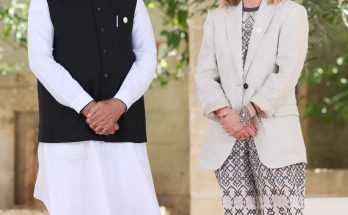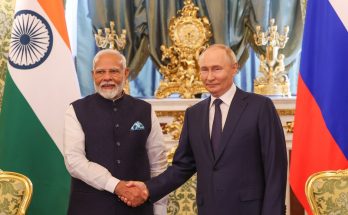
Is there an “India Way” in a rapidly shifting world order, beset by myriad contradictions and power play? Can India be a voice of moderation and balance in a world where hysteria and excess are becoming then new normal? Well, India’s External Affairs Minister S. Jaishankar certainly thinks so.
Shaper, not abstainer
Raising the bar for India’s global stature and pushing for a proactive foreign policy, Jaishankar told an elite audience of diplomats and the strategic community in New Delhi that India will be “a decider and shaper” rather than a mere onlooker to international developments.
“The India way now would be more a decider and shaper than an abstainer,” said Mr Jaishankar at the 5th edition of Raisina Dialogue, a track 1.5 international conference organised by India’s Ministry of External Affairs and Observer Research Foundation, a Delhi-headquartered think tank.
India has been “prisoner of its past image” and the country must get over it, he said.
Net security provider
Outlining defining features of an assertive and proactive foreign policy in the last few years under the Narendra Modi government, Jaishankar stressed that “India should be
a stabiliser, not a disruptionist power.”
India hopes that it can use its influence to be more consultative, be a net security provider to the region, and a contributor to connectivity, he said.
Jaishankar’s remarks signalled to the world that India has shed its diffidence that characterised its foreign policy outlook not too long ago, and is now ready to flesh out its vision of the kind of global power it wants to become. Looking ahead, he stressed that India will be proactively shaping the international relations discourse and will continue to be a standard-bearer and voice of the South. Above all, Jaishankar underscored India will use its “capacity to bear on the international system for global good.’’
It is not the India’s way to be selfish or mercantilist, the minister said.
India won’t let others define it
Jaishankar identified key focus areas of India’s foreign policy, which included: A focus on key challenges by broad engagement with many parties; Managing, if not leveraging, the global contradictions; and advancing our interests in the multiple-hour world and contributing to the global good.
With the Indian government coming under fire over the abolition of special srtatus of Kashmir, NRC and the new citizenship law, Jaishankar asserted that the key question should be whether India is going to define itself or will it allow others to define it.
“One aspect of re-balancing where India is concerned is today are we going to define ourselves or are we going to let other people define us. I would like to believe that it is the first. That is my political outlook and that of my party,” he said.
“Even something like naturalisation, what is the pathway the other nations have taken with regard to naturalisation of people. I think it is worthwhile looking at it,” Jaishankar said.
“Don’t get fixated on the dots and ignore the line. These are important issues. At the end of the day they reflect the mindset towards governance,” he said.
“A lot of what has happened in the last six months are sort of in the political sphere but the same mindset was also evident when it came to socio-economic issues,” he added.
Putting the focus on problem-solving rather than the old approach of endless prevarication, the minister stressed that the current government inherited a lot of problems and the effort now has been to not pass on them to future governments.
“The bottomline is: are we going to just inherit problems, multiply them, pass it on, or are we going to deal with some of them and probably leave the people who come after us better off,” he said.
“People are entitled to have opinions, but people are also entitled to have opinion on other people’s opinions. So I think life should be a two-way street,” he said.
Author Profile

- Manish Chand is Founder-CEO and Editor-in-Chief of India Writes Network (www.indiawrites.org) and India and World, a pioneering magazine focused on international affairs. He is CEO/Director of TGII Media Private Limited, an India-based media, publishing, research and consultancy company.
Latest entries
 India and the WorldJuly 9, 2024Defying West, India sets $100 billion trade target with Russia
India and the WorldJuly 9, 2024Defying West, India sets $100 billion trade target with Russia India and the WorldJuly 5, 2024India at SCO: Takes swipe at Pakistan for cross-border terror, pushes alternative to BRI
India and the WorldJuly 5, 2024India at SCO: Takes swipe at Pakistan for cross-border terror, pushes alternative to BRI India and the WorldJune 14, 2024Modi’s Day 1 in Italy: Bonding with Britain, France
India and the WorldJune 14, 2024Modi’s Day 1 in Italy: Bonding with Britain, France India and the WorldJune 13, 2024G7 summit in Italy: Modi to showcase India as leader of Global South
India and the WorldJune 13, 2024G7 summit in Italy: Modi to showcase India as leader of Global South






